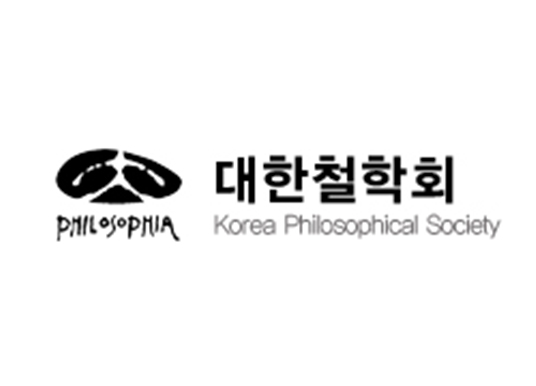‘시간과 공간의 철학’에서 ‘시간의 철학’으로 : 라이헨바흐 시간 철학의 전개에 관한 연구
From the Philosophy of ‘Space & Time’ to the Philosophy of ‘Time’ : A Study on the Development of Hans Reichenbach’s Philosophy of Time
강형구
국립목포대학교 교양학부
철학연구
2024, vol.171, pp. 1-21 (21 pages)
10.20293/jokps.2024.171.1
대한철학회
초록
한스 라이헨바흐(Hans Reichenbach, 1891-1953)는 20세기의 물리학적 성과를 상세하게 분석하며 시간에 대한 심도 있는 철학적 논의를 전개한 대표적인 20세기 과학철학자이다. 시간에 대한 그의 철학적 분석은 1920년 저작 『상대성 이론과 선험적 지식』에서 시작하여 그의 사후인 1956년에 출판된 미완성 유고작 『시간의 방향』에 이르기까지 30년이 넘는 기간 동안 진행되었다. 특히 그가 남긴 『시간의 방향』은 그 출판 이래로 오늘날까지 시간의 철학적 본성에 관한 논의에서 중요한 영향력을 행사하고 있다. 다만 그가 제시한 철학적 관점을 어떻게 해석할 것인지의 문제와 관련해 여러 학자가 의견을 달리했는데, 나는 과학철학의 역사 연구자로서 본 논문에서 그의 시간 철학을 좀 더 정합적으로 이해하는 새로운 관점을 제안하고자 한다. 내가 볼 때 라이헨바흐 시간 철학의 핵심은, 엔트로피적인 의미에서의 시간 방향이 우주의 부분에 따라 변동할 수 있다고 하더라도, 물리적 대상 혹은 사건들 사이의 인과적 상호작용으로서의 시간 방향은 유지될 수 있다는 관점이다. 하지만 라이헨바흐가 볼 때 이론물리학자 리처드 파인만(Richard Feynmann)이 제시한 양자 이론은 이러한 ‘초시간적’ 의미에서의 시간 방향 개념에 심각한 도전을 제시했는데, 왜냐하면 파인만은 양전자(positron)를 ‘시간을 역행하는 전자’로 볼 수 있다는 관점을 제시했기 때문이다. 이러한 파인만의 제안은 ‘닫힌 인과’의 경로가 가능함을 함축하므로, 이는 라이헨바흐가 여러 분야의 물리학 지식을 분석하면서도 끝내 유지하고자 했던 ‘인과성의 원리’에 결정적인 위협을 가하는 것처럼 보였다. 그의 논의는 그의 갑작스러운 사망으로 인해 이 지점에서 결론을 맺지 않고 끝났지만, 나는 ‘동일성 지속의 원리’를 좀 더 유연하게 하는 방식으로 ‘초시간적’ 의미의 시간 방향 개념을 유지하는 것이 가능하리라고 전망한다. 이는 곧 시간의 실재성을 긍정하는 것이며 이론물리학자 리 스몰린(Lee Smolin)의 용어법을 사용하면 ‘시간적 자연주의(temporal naturalism)’의 관점을 취하는 것이다.
Hans Reichenbach (1891-1953) was a prominent 20th-century philosopher of science known for his in-depth philosophical discussions on time, grounded in detailed analyses of the scientific achievements of the 20th century. His philosophical analysis of time began with his 1920 work, The Theory of Relativity and A Priori Knowledge, and continued for over thirty years, culminating in his unfinished posthumous manuscript, The Direction of Time, published in 1956. Notably, The Direction of Timehas exerted a significant influence on discussions concerning the philosophical nature of time from its publication to the present day. However, scholars have diverged in their interpretations of his philosophical perspective. As a researcher in the history of the philosophy of science, I aim to propose a new perspective in this paper, for a more coherent understanding of Reichenbach’s philosophy of time. In my view, the core of Reichenbach’s philosophy of time is the idea that while the direction of time in an entropic sense can vary depending on different sections of the universe, the direction of time as causal interactions between physical objects or events can be maintained. Nevertheless, according to Reichenbach, Richard Feynman’s quantum theory posed a serious challenge to this concept of the direction of time in a sense of “super-time”. Feynman suggested that a positron could be viewed as an “electron moving backward in time.” This proposal implies the possibility of “closed causal” paths, which seemed to pose a decisive threat to Reichenbach’s “principle of causality,” which he endeavored to uphold even while analyzing knowledge from various fields of physics. Although Reichenbach’s discussion did not reach a conclusion due to his sudden death, I foresee that it is possible to maintain the concept of the direction of time in a sense of “super-time” by adopting a more flexible approach to the “principle of gen-identity.” This essentially affirms the reality of time, and using the terminology of theoretical physicist Lee Smolin, this perspective aligns with “temporal naturalism.”

